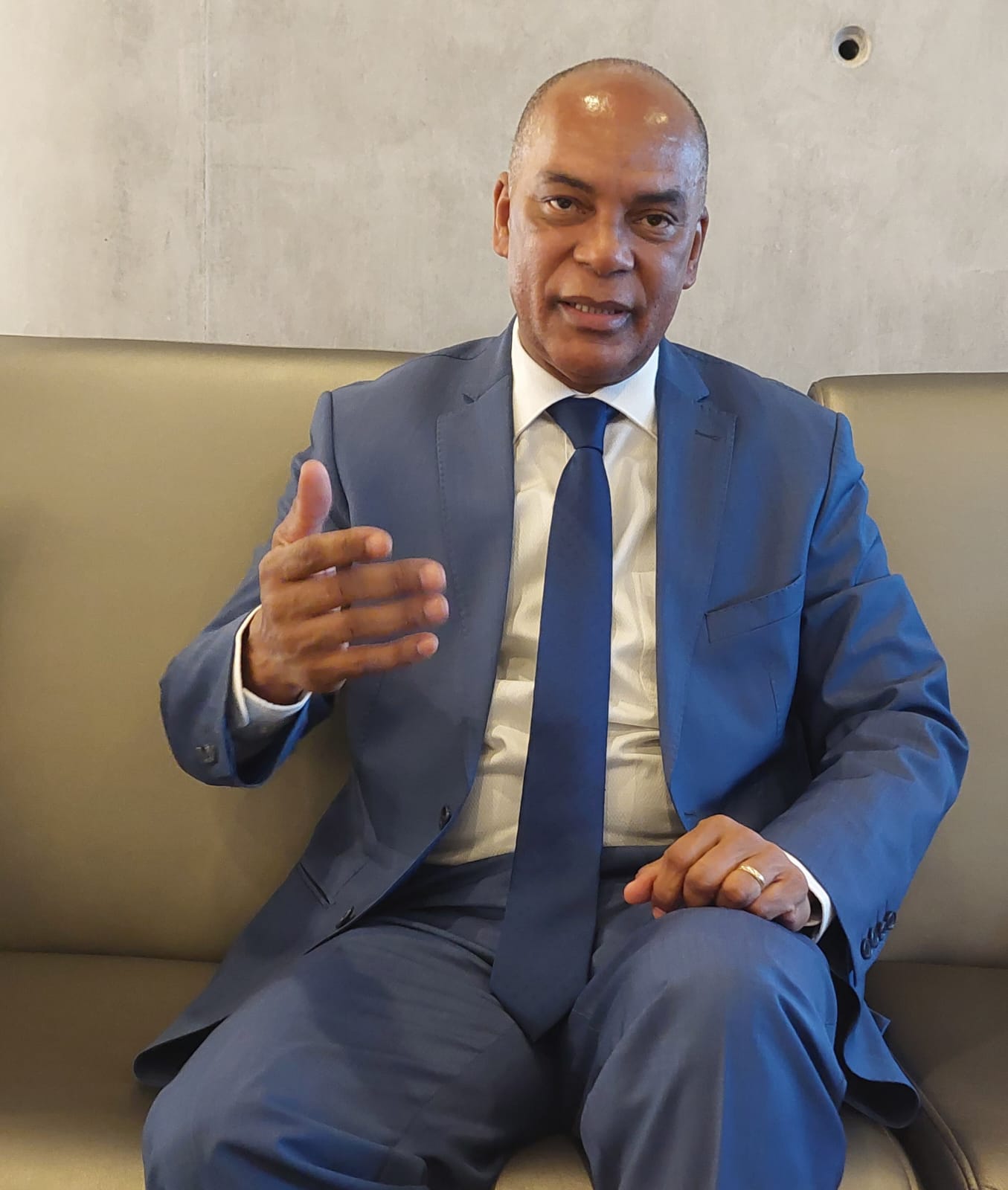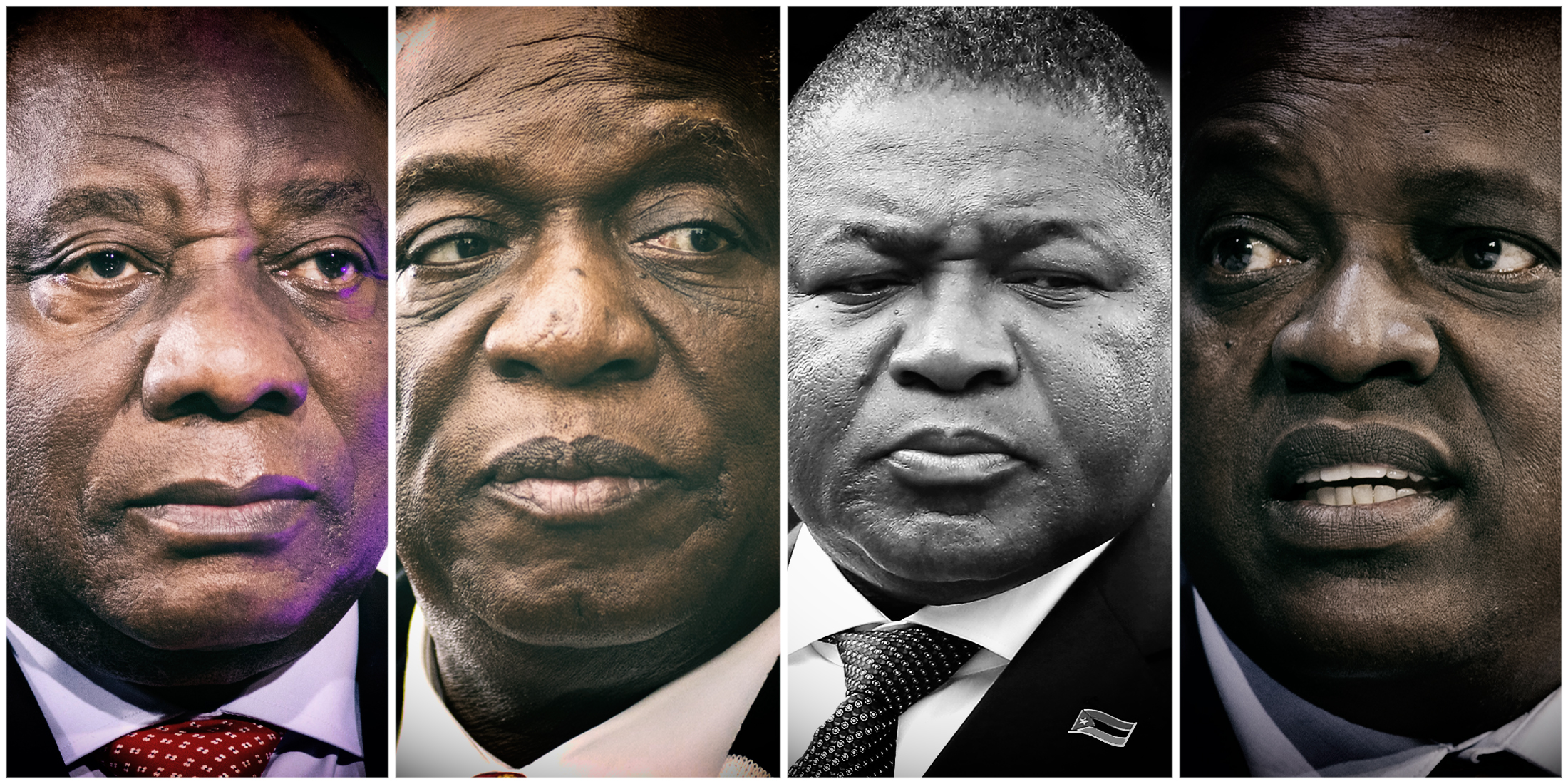There has been much head-scratching over the failure of President Cyril Ramaphosa to go beyond rhetoric and act decisively to deal with the country’s myriad challenges, from rolling blackouts to the rapid growth of a parallel mafia state.
But Ramaphosa is not unique. He shares the inability to deal with major structural problems in governance and the economy with his fellow liberation leaders in Zimbabwe, Angola, Tanzania and beyond. The same malaise has also, curiously, gripped Uganda’s Yoweri Museveni, who liberated his country from liberators.
The answer lies in the fact that liberation movements are well suited to rhetoric and populist posturing. They can harangue you with war stories and summon demonising rhetoric, but when it comes to making decisions and acting on them with speed, they appear to sink in a molasses of indecision and rumination. Why does this pattern repeat itself?
The answer is, of course, straightforward. By the time their countries hit economic and political tailwinds, it is the liberation movements’ own leaders who are in the thick of the state’s failures, infusing the state with corruption, rent-seeking, the appointment of cronies and a culture of indifference to outcomes.
This is true across southern Africa — with the People’s Movement for the Liberation of Angola (MPLA) in Angola, South West African People’s Organisation (Swapo) in Namibia, Zimbabwe African National Union (Zanu) in Zimbabwe, Chama Cha Mapinduzi (CCM) in Tanzania, Botswana Congress Party (BCP) in Botswana, the Liberation Front of Mozambique (Frelimo) in Mozambique and, of course, South Africa’s African National Congress (ANC).
As the tide of failure rises ever higher and the liberated masses realise they have been sucking on a lemon, the question then becomes: How do you throw the bums out, or at least make politics competitive enough to incentivise them to change their ways?
The answer is that it is not easy. In fact, it’s so difficult that — Zambia, Malawi and Lesotho aside — this has not happened since independence. Liberation movements learnt well from each other how to grasp power, and even more so how to retain it.
None of them was going to make the same mistake as Kenneth Kaunda in hosting free and fair elections, which saw the Zambian founding father and his United Independence Party (Unip) bundled out of power unceremoniously in 1992 — that is, until Edgar Lungu was similarly deposed by Hakainde Hichilema in the elections in Zambia in 2021. Kamuzu Banda’s fate in Malawi in 1994 offered another reminder not to allow an open and competitive process.
In some cases, including Zanu, it’s the old, brutal face of authoritarianism, involving beatings, assassinations (sometimes of entire classes of the population), detention without trial and the constant flow of money to the privileged few. But more often it’s the more sophisticated façade of contemporary dictators, of tight political control, information flows through trolls, bots and self-censorship, a system in which they buttress critical support through money, including access to preferential contracts.
‘Spin dictators’
It’s less, as Sergei Guriev and Daniel Treisman argue, about “fear dictators” than “spin dictators”. Populism, too, is useful, and mobilising through promises and attacks against the elites is part of this arsenal. Rather than restricting flows, “spin dictators … mostly welcome flows of people, capital, and data and find ways to profit from them”. Rather than imposing from the top the “loyalty rituals” of Stalin or Saddam, modern dictators “adopt a cooler rhetoric of competence and expertise, sometimes with a light socialist or nationalist veneer”.
This modern version of dictatorship ensures such movements are more difficult to unseat, particularly when they avoid violent repression and their human rights transgressions are cloaked under a layer of respectability. And, when external donors prefer stability over democracy — a decision, of course, which they have no right to make — the modern dictator is smiling all the way to the development bank.
In fact, it’s so difficult to unseat liberation movements that even when they lose, as in Zimbabwe in 2008, they hang on to power, and eventually cut a deal for some sort of inclusive government. Then they learn from their mistakes and ensure the next time around they win handsomely with a package of measures including an overinflated voters’ roll, media suppression, manipulation of results and, again, the steady flow of money to oil the wheels of electoral behaviour and support.
They have all learnt the lesson that elections are not rigged on voting day when observers are swarming about and the cameras are clicking. Sophisticated rigging is about who gets to vote, who controls the media space in the months, who gets to campaign, and, most crucially, who controls the counting of the ballots.
Visit Daily Maverick's home page for more news, analysis and investigations
There is hope
But there is some hope, and it comes from an unlikely place — Angola. Long considered the worst version of rent-seeking politics with a political economy based on proximity to the oil spigot, the 2022 election proved a curveball for the MPLA, in power since the Cubans helped install them in 1975.
Its historic rival, the National Union for the Total Independence of Angola (Unita), has transitioned from Jonas Savimbi’s bellicose bush army to a sophisticated modern, youthful party with urban support. It managed a radical turnaround at the August poll, officially increasing its support from just under 27% to nearly 44%, and increasing its share of parliamentary seats by 39 to 90.
 Unita leader, Adalberto Costa Júnior. (photo supplied)
Unita leader, Adalberto Costa Júnior. (photo supplied)
“Officially”, because many observers had Unita winning the election by a margin of more than 12%. Its leader, Adalberto Costa Júnior, focuses on three reasons for Unita’s success:
- The dismal state of the economy and the widening wealth gap;
- The detailed organisational effort behind Unita in mobilising and protecting the vote; and
- Solicit and receive support from outside of the party, including the churches and civil society.
This was in spite of the MPLA making it very difficult, including effectively preventing external polling and being the only source of authority in the rural areas, and a massively inflated voters’ roll “which had 3 million dead people on it, some of whom had been dead for 25 years”, says Costa.
But while Unita’s efforts, he admits, may have been enough to win the election, they were insufficient to prevent the victory from being taken away. “At 10.30 in the evening, the internet was simply turned off. Then when the results came out, we went from having a 60%-plus lead to being under 45%.”
The lessons from Unita, and the Movement for Democratic Change (now the CCC — the Citizens Coalition for Change) in Zimbabwe, is that you have to recognise that the ruling party won’t go easily, and that you have to win big enough that the rigging would be so extreme that even the shameless inside and outside would notice.
A good strategy requires you to:
- Protect the vote;
- Develop a communications network independent of the government;
- Get civil society and at least a segment of the armed forces onside;
- Promote a narrative of change and of victory;
- Reduce the fear of retribution by offering a way for the corrupt to pay back their stolen money, thus ensuring that the elites won’t adopt radical tactics to stay put; and
- Build a youth movement worthy of the legend.
You need the confidence, Costa notes, “not to use violence, which only begets more violence by the state”. You also need to build a common front with other opposition movements under a single flag, which Unita largely managed; and finally, to make common cause with regional opposition movements.
The latter can help reduce costs through joint procurement and economies of scale, ensure a degree of diplomatic protection for when things go wrong in being a counter to what governments do all the time — protect each other — and help with fundraising, the lifeblood of any campaign.
But, finally, don’t expect that outsiders will help you, even though lobbying for your cause remains important.
Do all this, and actually win a majority of the vote, and there is a strong chance of unseating a southern African incumbent. DM
Greg Mills and Ray Hartley are with The Brenthurst Foundation. www.thebrenthurstfoundation.org




 hhh
hhh 